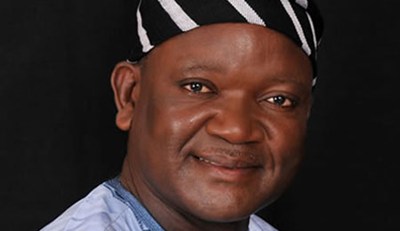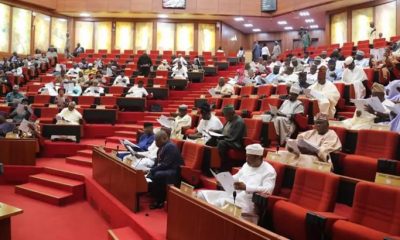News
Bailout loan: Benue gov’t give details after misleading online reports

Benue State government has reacted to the trending reports alleging that Benue State House of Assembly approved fresh loan for the State, describing the report as misleading and politically motivated.
In a statement by the Special Adviser to the governor on Media and Publicity, Mr Terver Akase on Monday, Benue State governor, Samuel Ortom said, mischief makers chose to sponsor a misleading report as a smear campaign against him and the Speaker of the Assembly, addi g that it wasn’t a fresh loan.

The statement reads: “We read a sponsored online publication aimed at smearing the reputation of Governor Samuel Ortom and the Speaker, Benue State House of Assembly, Rt Hon Titus Uba in which authors of the piece attempted to cast the present administration as one thriving only on loans.
“While we are not bothered by the jaundiced intent of those behind the article, we find it pertinent to put the records straight for the benefit of Benue people who may be misled by the politically-motivated publication.
“Since 2015 when Samuel Ortom became the Governor of Benue State, the only thing critics have desperately tried to use against him is payment of salaries and pensions. But such critics also know that Governor Ortom was not responsible for the recession which Nigeria went into in 2016, making it difficult for 27 states including Benue to pay salaries and pensions.
“The Ortom administration, like those of other states, in 2015 applied for the bailout which the Federal Government had resolved to give to states to cushion the adverse effects of the recession and enable them to pay the outstanding salaries and pensions. The Benue State Executive Council sought the approval of the State House of Assembly and applied for N61 billion bailout which would have addressed the backlog of the emoluments.
“The Federal Ministry of Finance and Central Bank of Nigeria, for whatever reason, approved and released only N28 billion of the bailout, leaving N41 billion pending. Out of the N28 billion that came to the state, N15.5 billion was for the 23 local government areas while N12.5 went to the state for payment of the outstanding emoluments.
“Recall that Kogi and some other states later re-validated the 2015 bailout application and were given the balance of the total amount they originally requested.
“The Benue State Government also made several efforts to get the N41 billion balance released to it, but such efforts could not yield results as the Federal Government was not forthcoming until recently.
“The N41 billion loan facility the Benue State House of Assembly approved a few days ago was therefore only a re-validation of the application for the pending bailout of N41 billion and not a fresh loan approval. Out of the N41 billion, N17 billion will go for payment of the arrears of salaries and pensions at the state level, while N24 billion will go to local governments.
“This is an undisputed fact those who authored the online publication don’t want the people to know. Their fear is that once Governor Ortom is able to get the funds and clear the arrears of salaries and pensions, they will no longer have anything to hold as a tool to tarnish his image and that of his administration. They are the real enemies of Benue workers and retirees. As far as their aim of painting the Governor in bad colours is achieved, the interest of the workers and pensioners does not count.
“In their desperation, the authors of the same piece have dragged the Speaker of the Benue State House of Assembly, Rt Hon Titus Uba into their campaign of calumny, branding him with all manner of names.
“The Benue State Assembly is not a Titus Uba house. It is a legislature made up of representatives of all Benue people where other political parties also have members. The recent approval given by the Assembly for the N41 billion bailout request received unanimous support from members of the House. To therefore isolate the Speaker for attacks is not only unfortunate but also smacks of shameful vendetta. It is politics taken too far.”

























